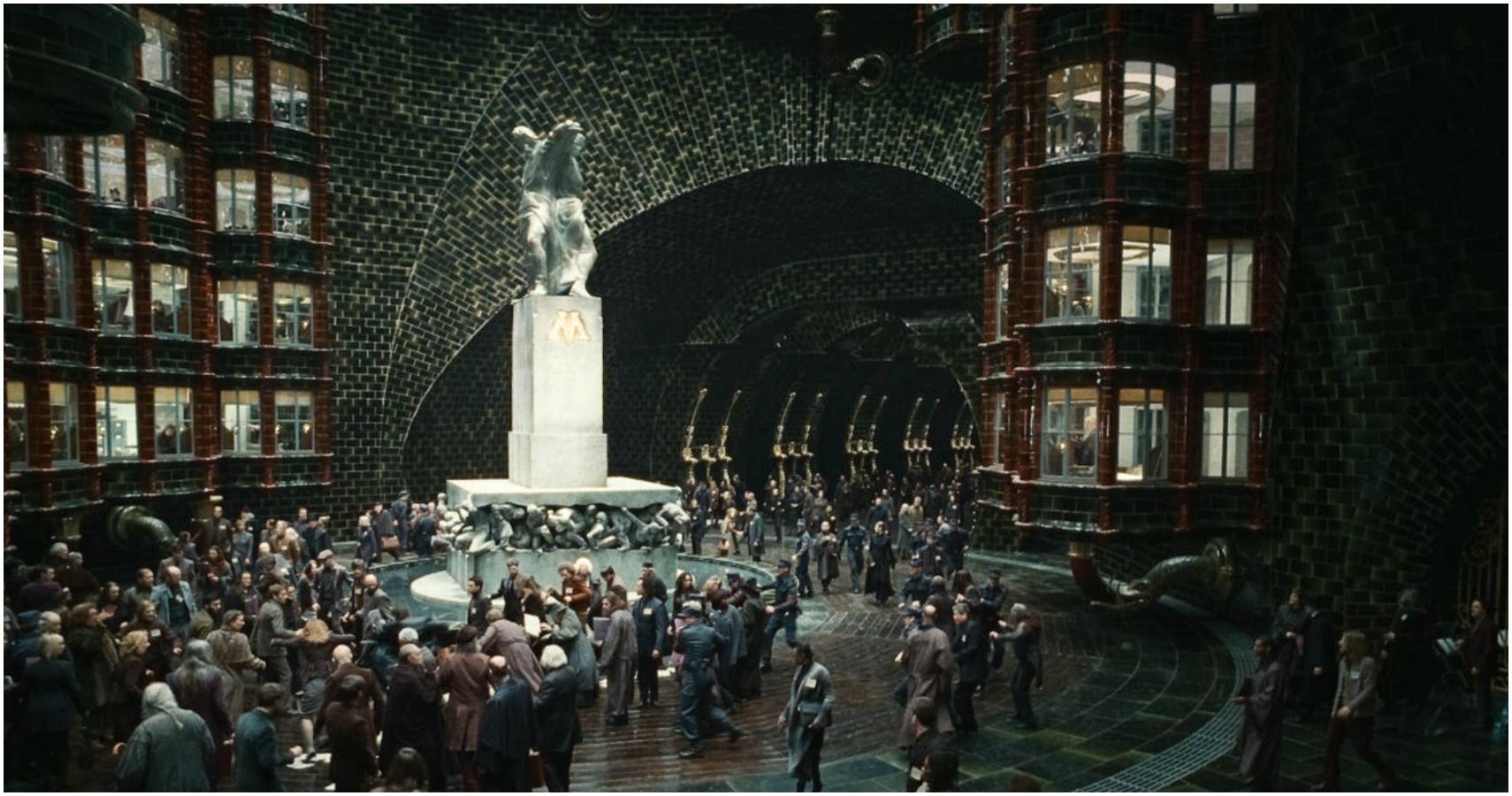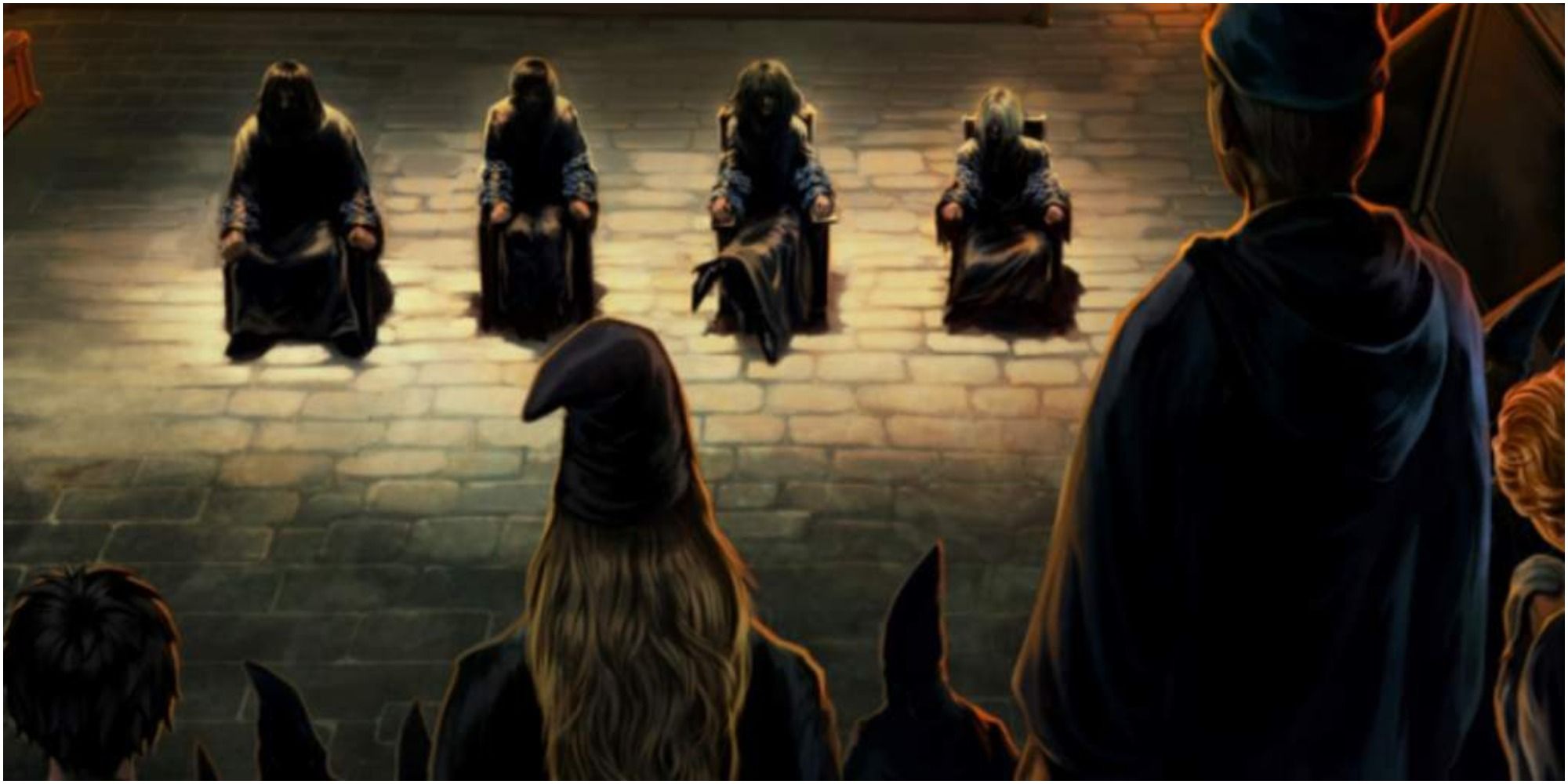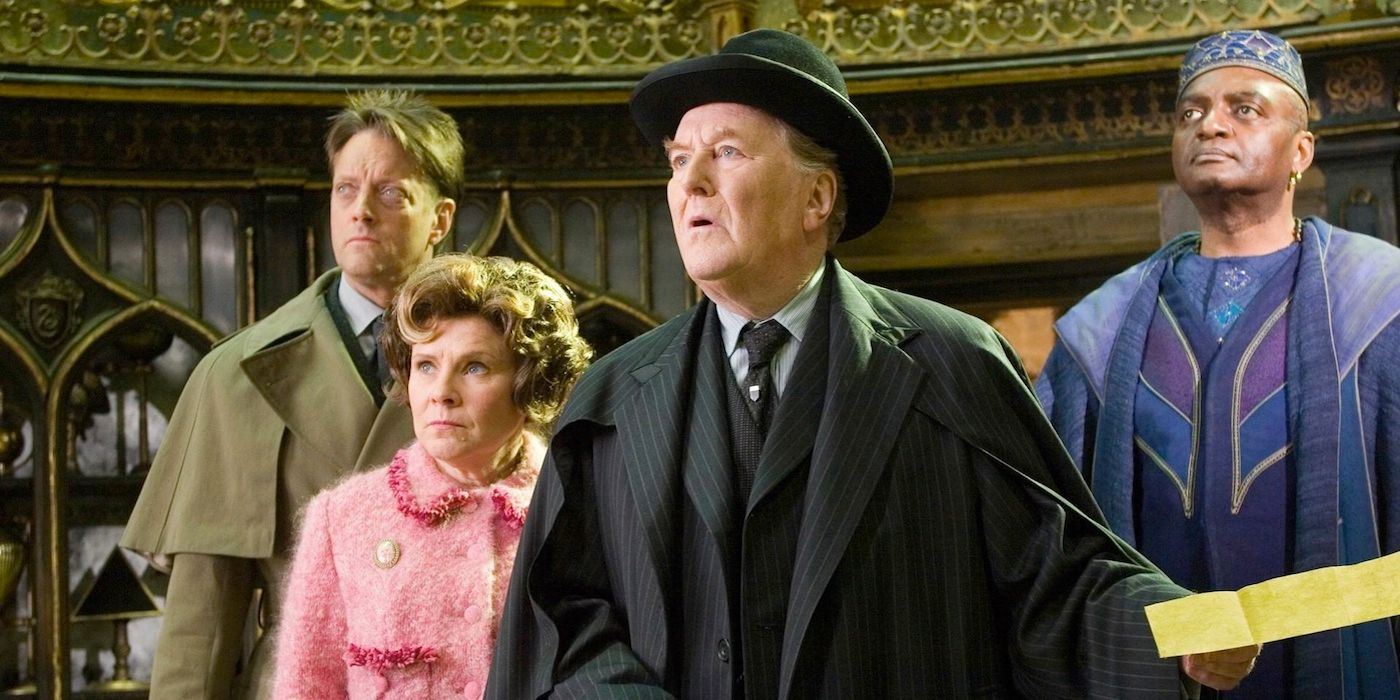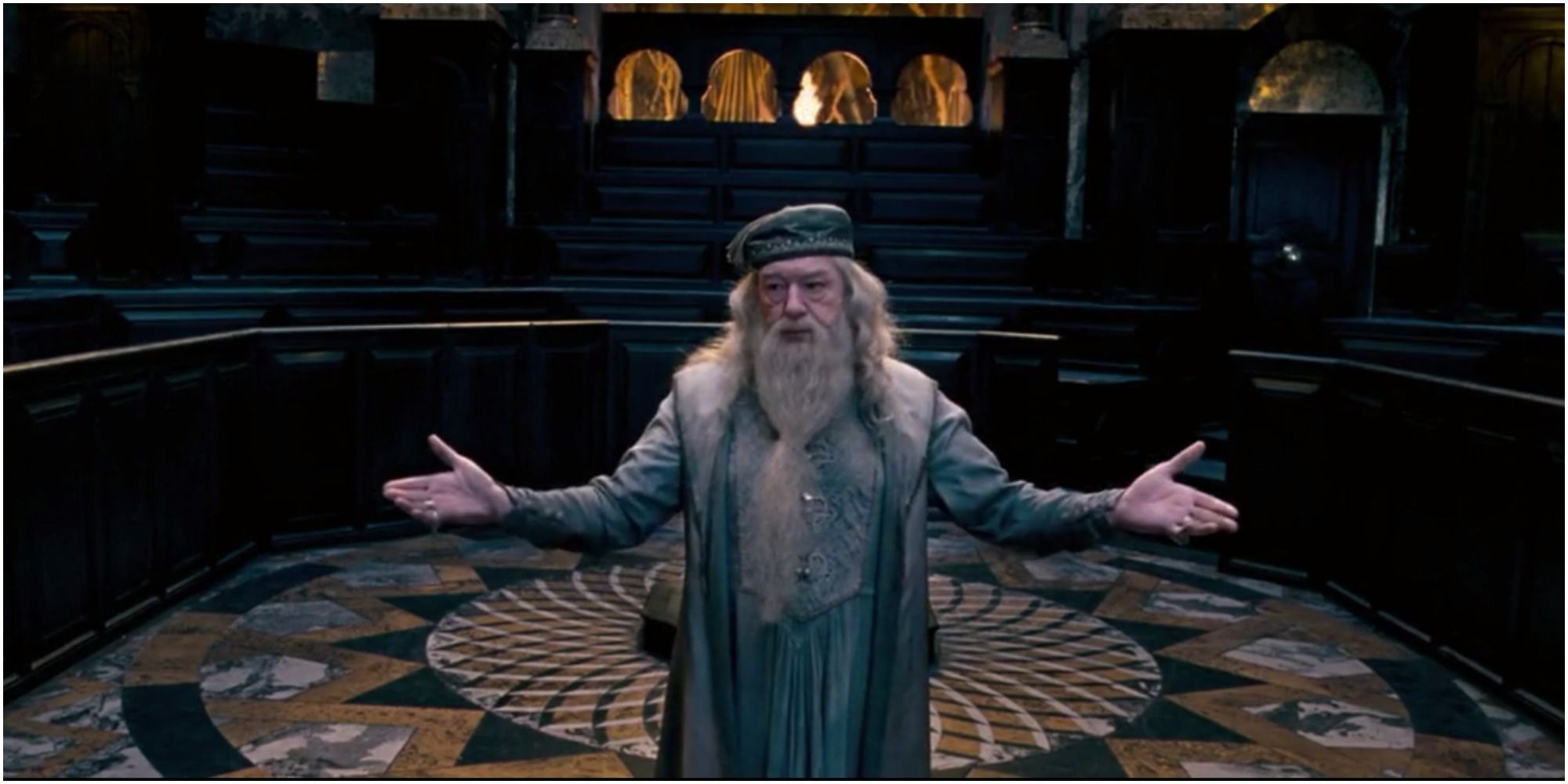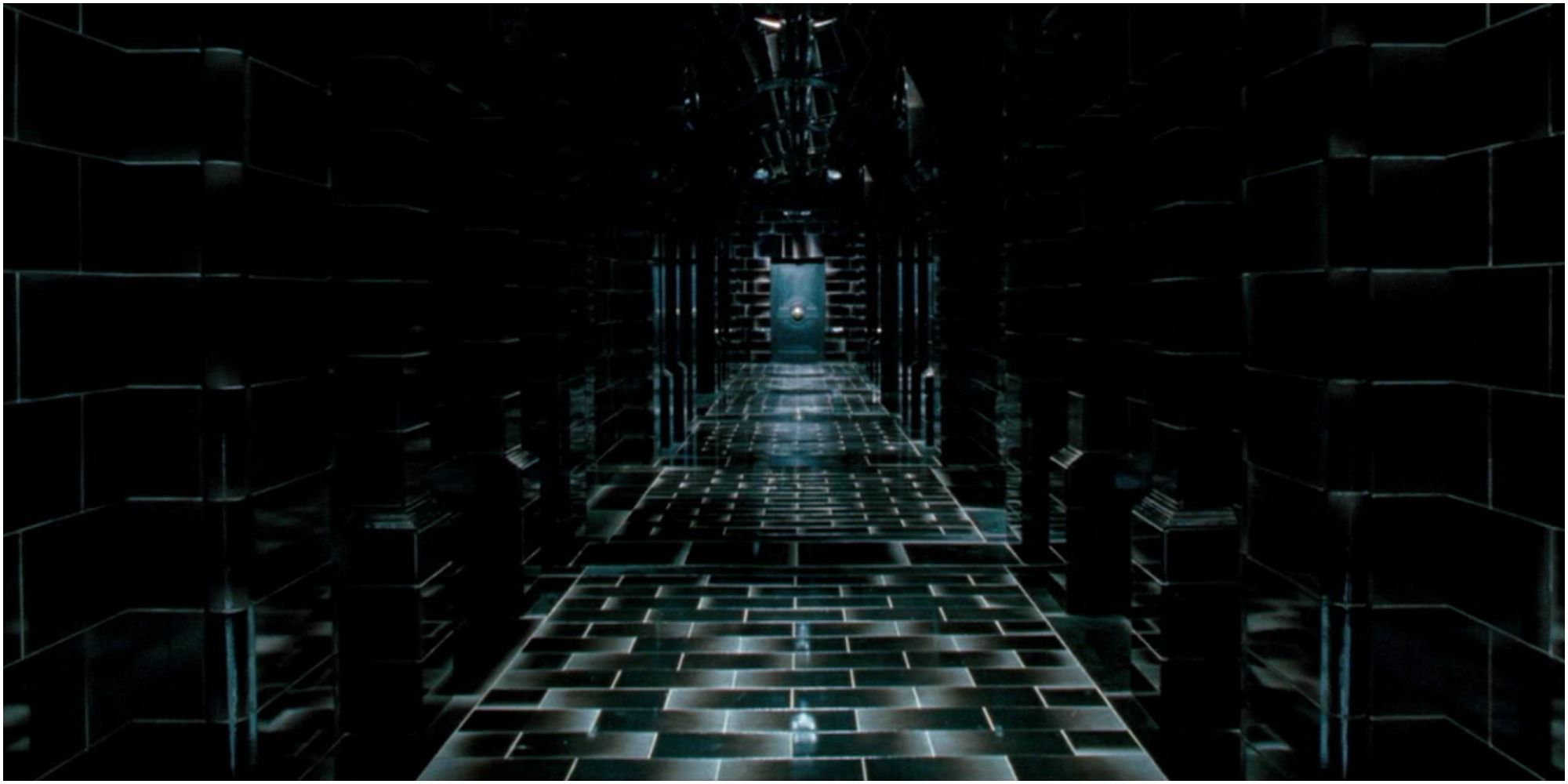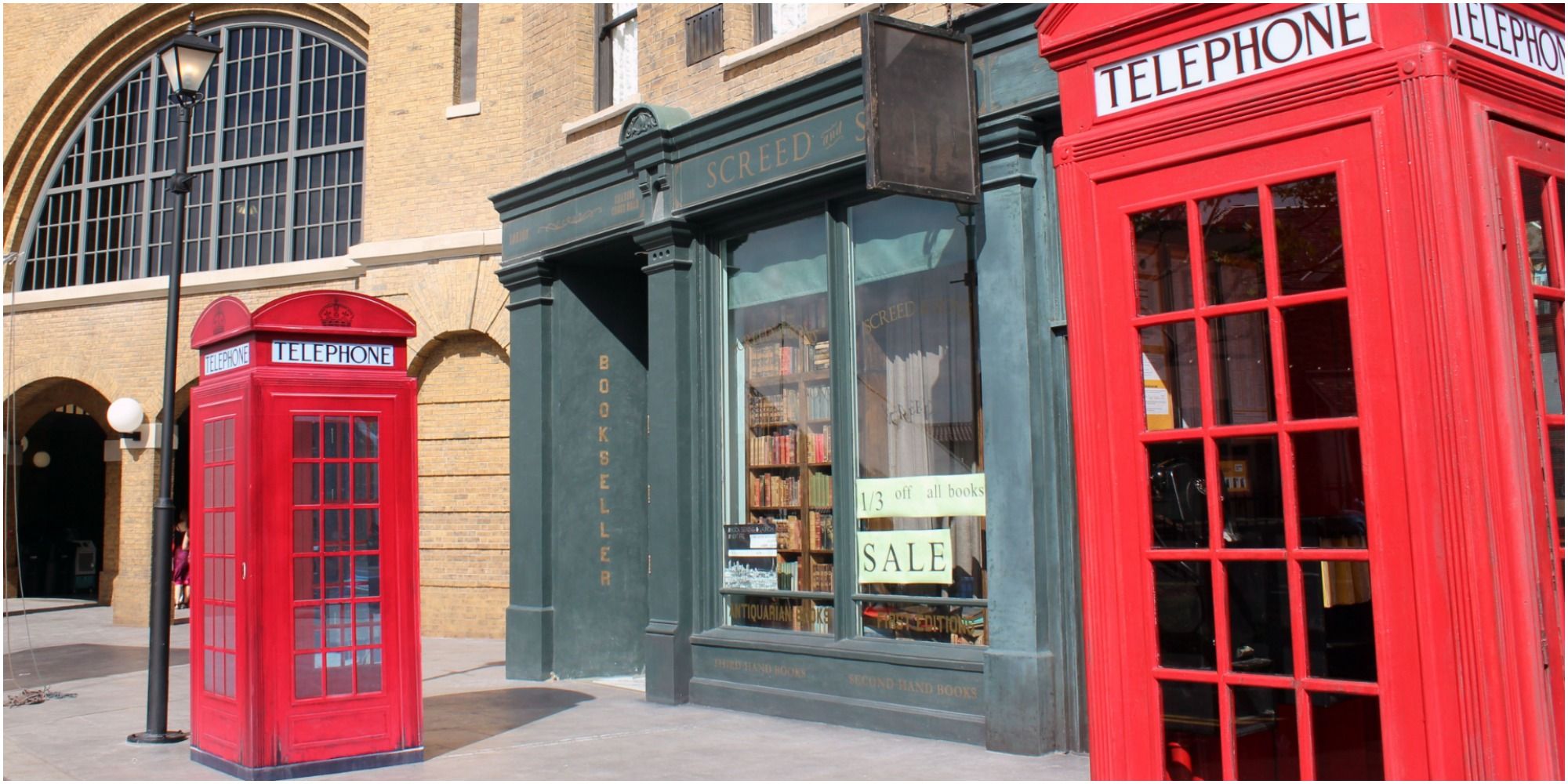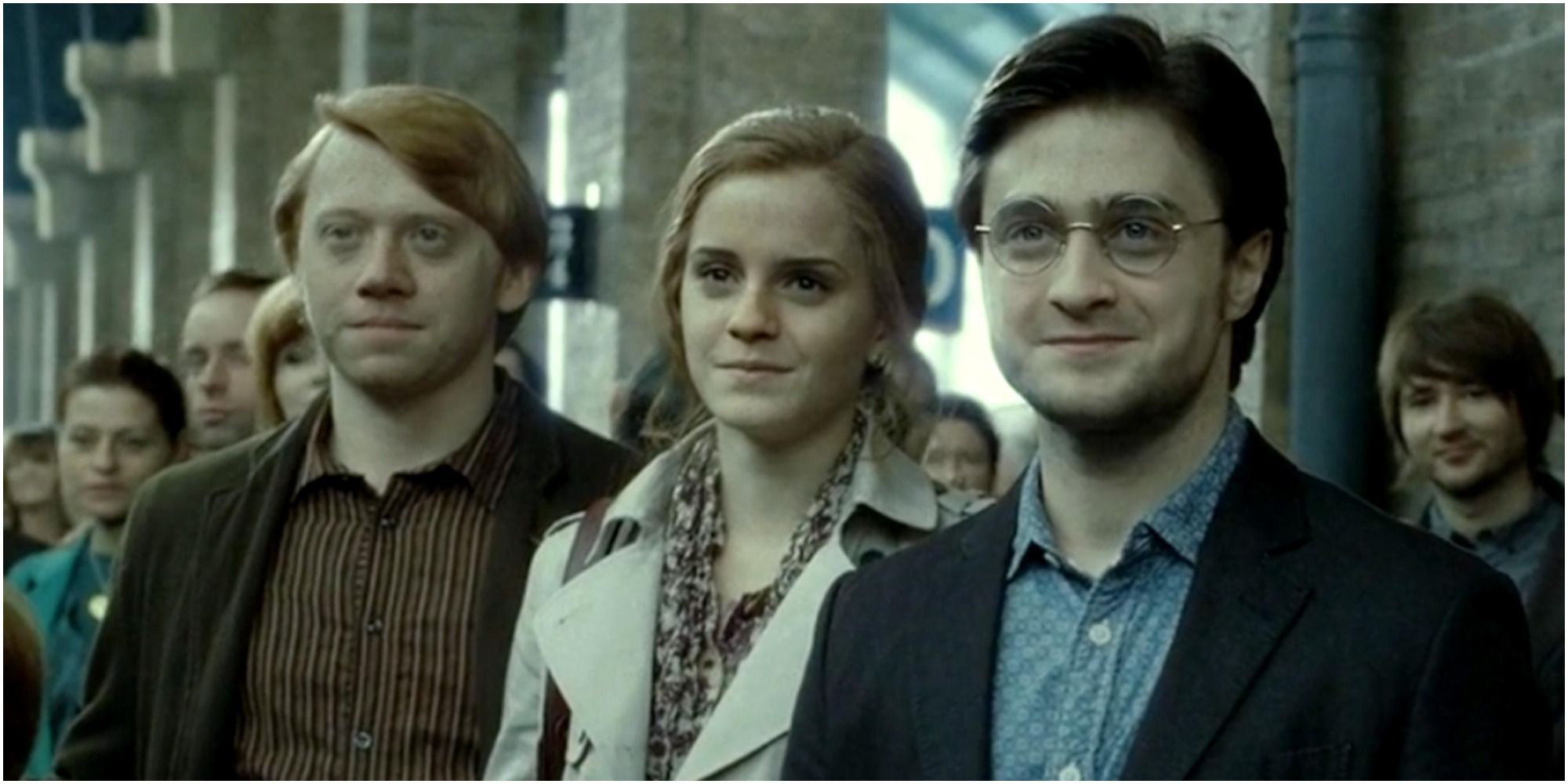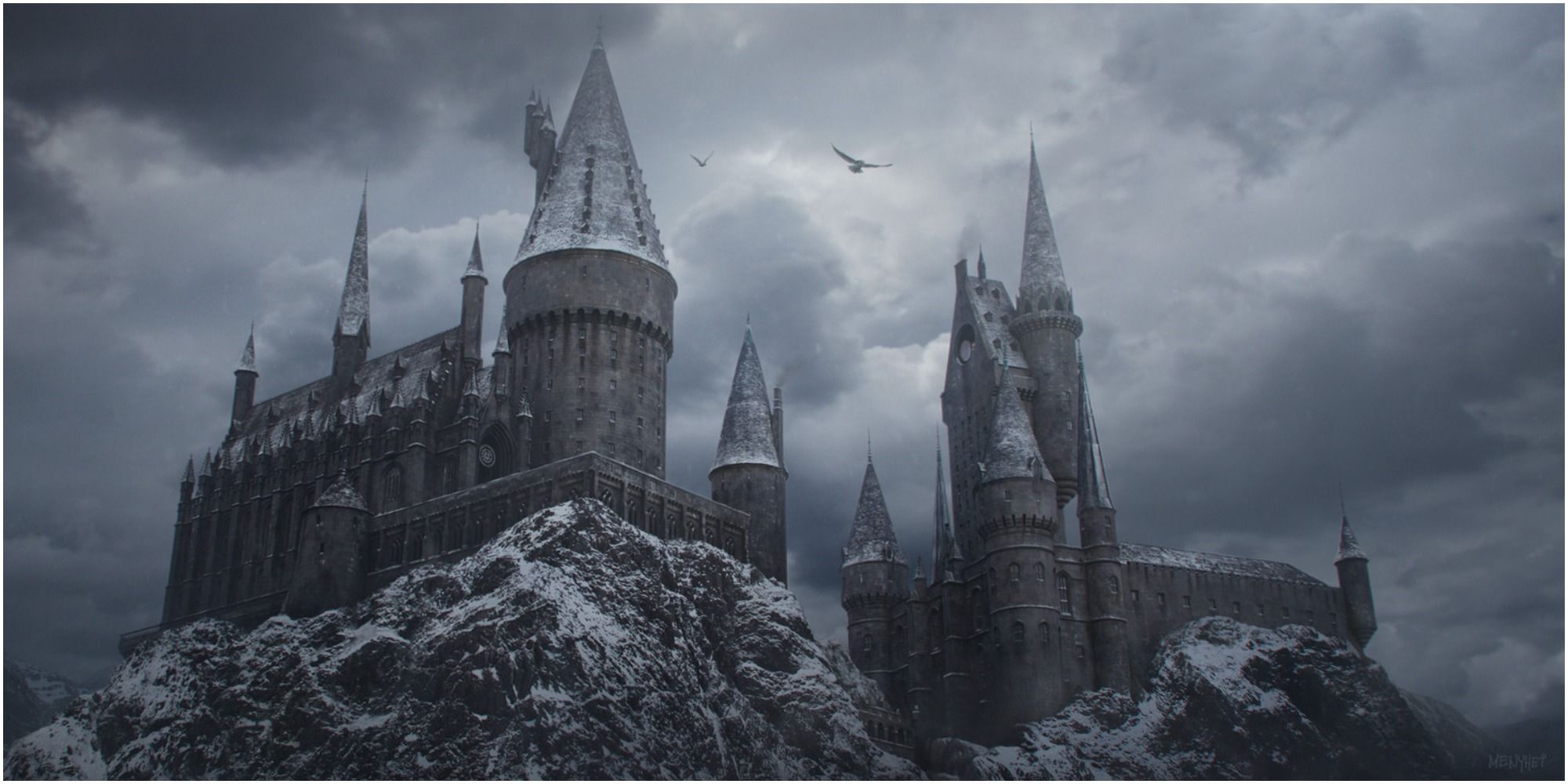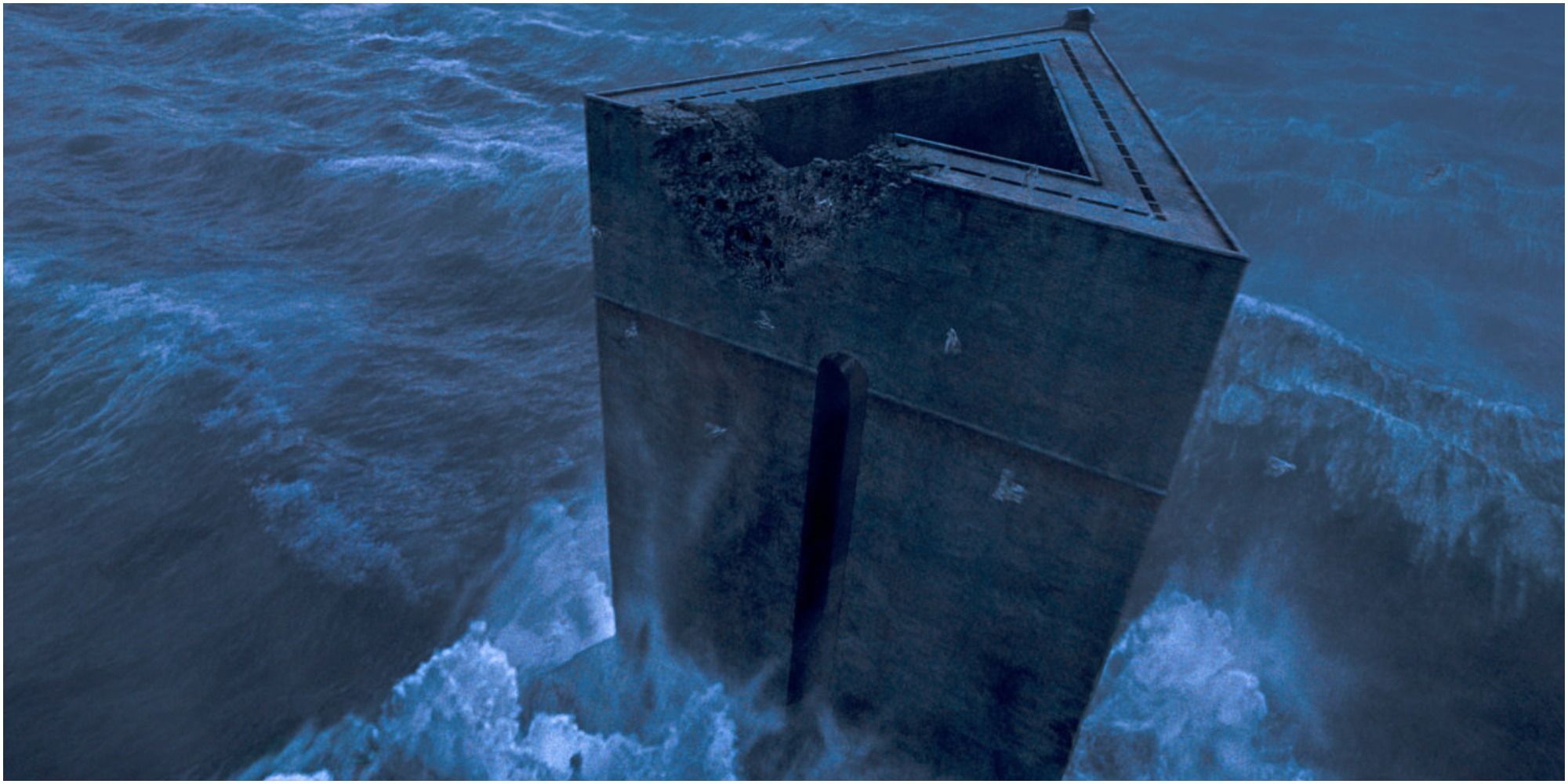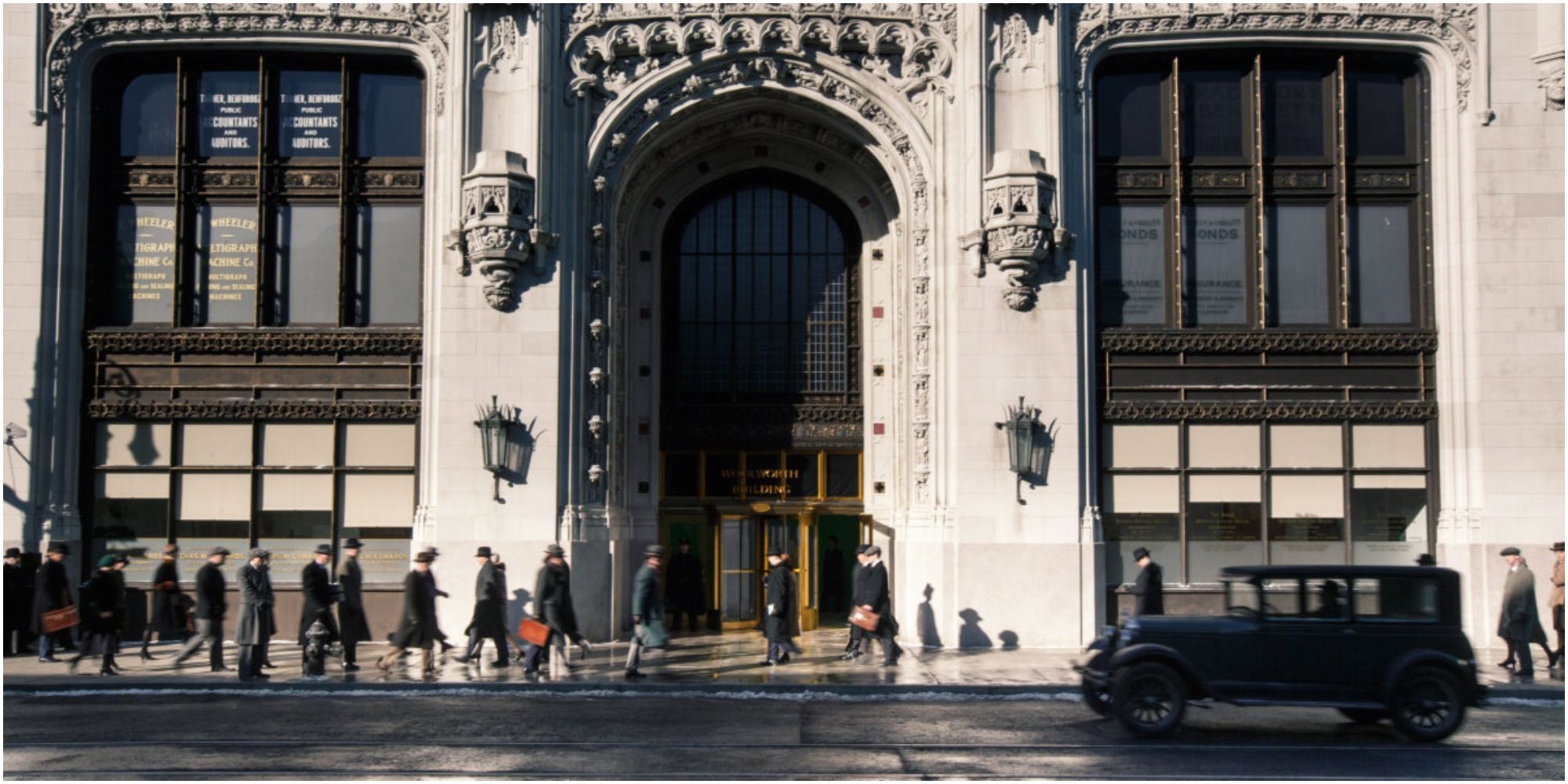As the main governing body of the British wizarding community, the Ministry of Magic had an irrefutable influence over the entire development of events in the Harry Potter series. Likened to the actual government of Britain, this fictional ministry struggles to maintain balance and its grasp over the wizarding community. However, there is much more to discover about this institution than the movies led us to believe. Its very conception is shrouded in mystery and the departments it holds sworn to secrecy.
Luckily, J.K. Rowling continuously provides her fans with new interesting and relevant information pertaining to the wizarding world, and we're now able to piece together a much fuller picture. Hence, the following list will attempt to pull the invisibility cloak off the lesser-known facts that every Harry Potter fan needs to know about the Ministry of Magic.
The Ministry of Magic succeeded the original Wizard's Council
The increasing discontent between the wizarding and Muggle communities in the 17th century culminated with the International Confederation of Wizards signing the 1692 Statue of Secrecy. Up until that point, the Wizard's Council was responsible for regulating the magical folk.
However, with the signing of the Statue of Secrecy, a larger and more organized body needed to be established to help govern the hidden wizarding community - the Ministry of Magic. Formed in 1707, the Ministry of Magic effectively succeeded the Wizard's Council.
The Minister of Magic works with the Muggle Prime Minister
Traditionally, on the night a Muggle Prime Minister of a country was elected, he or she would be visited by the appointed Minster of Magic. The Prime Minister would then be informed about the magical world and urged to keep it a secret. He or she would also be informed of any events or affairs occurring in the wizarding world that might have adverse effects on the Muggle world.
In the books, an example of this was the re-emergence of Lord Voldemort. Otherwise, both ministers would work together to ensure the prosperity of their worlds, as well as the secrecy of the wizarding world.
Dumbledore was the chief warlock of the Wizengamot
Many fans know that Dumbledore was offered the position of the Minister for Magic on multiple occasions; however, our favorite headmaster had also served as the chief warlock of the Wizangamot for a large portion of the 20th century. It was only during the fifth installment of the series that he was briefly removed from the position, when Cornelius Fudge believed he was spreading false rumors of Voldemort's return.
Wizengamot is the court of law of the wizarding world. When the Ministry was established, the Wizengamot became part of the Ministry of Magic's Department of Magical Law Enforcement. The trials conducted by the Wizengamot take part in the dungeons beneath the Ministry of Magic, and its members are easily recognizable, sporting plum-colored robes embroidered with a silver "W."
The Department of mysteries pre-dates the ministry
Shrouded in secrecy, the Department of Mysteries is a section of the Ministry of Magic run by so-called "Unspeakables." These individuals are forbidden from disclosing anything about the department or their affairs within it.
What many fans don't know is that this department actually predates the Ministry of Magic itself, and has conducted its secretive and chilling affairs beneath the heart of London far before the Ministry was even established. It's likely that the Ministry of Magic was built around it when it was established in 1707.
To enter the Minstry, type 62442 in a London Phone Booth
On a conventional telephone, dialing 62442 will spell out the word "MAGIC." This is also the number that you'd dial in the red phone booth near King's Cross station if you wanted to enter the British Ministry of Magic.
After dialing, a Welcome Witch will answer, asking what your business with the Ministry is. Upon stating your name and purpose, the phone booth will transform into a lift, lowering you to the atrium of the Ministry of Magic.
The Golden Trio all went on to work for the Ministry
During their studies at Hogwarts, both Harry and Ron developed aspirations to be come Aurors after they graduated. Unfortunately, the events that unfolded following the return of the Dark Lord prevented Harry, Ron, and Hermione from finishing their time at Hogwarts.
The boys then decided they would not continue their studies and were able to fetch Auror jobs at the Ministry, while Hermione was eager to return to Hogwarts and pass her final exams. However, she was later also employed in the Ministry to serve in the Department of Magical Law Enforcement. According to Harry Potter and the Cursed Child, she would go on to become Minister!
The Ministry of Magic covers all Hogwarts expenses
Despite being one of the most lauded and famous private schools for wizards, Hogwarts is completely tuition-free. J.K. Rowling herself confirmed in a 2015 tweet that there is no tuition fee for attending Hogwarts and that all expenses are covered by the Ministry of Magic. This response from the famous author was prompted by a Mic article which calculated the total estimated cost of attending Hogwarts for a 7-year period as amounting to a whopping $300,000.
This kind of tuition fee would place Hogwarts at the level of the most prestigious private universities in the world and likely deter most wizards and witches from attending it.
The Ministry was not always aware of the existence of Azkaban
We all know that Azkaban serves as a remote and desolate prison under the governance of the Ministry of Magic. However, this has not always been the case. The island that houses the Azkaban prison has actually existed for well over five centuries, and although no one is certain about how it came to be, we know it was used by an extremely powerful dark wizard who called himself Ekrizdis.
Not much is known about this wizard, except that he indulged in the most malicious acts of dark magic, torturing and killing stray muggle sailors. It was only after his death that the island was discovered, along with all the horrors contained within it. Being completely desolate and populated by vicious and mysterious creatures known as Dementors, the Ministry of Magic decided to turn the island into an nigh-inescapable prison.
During its History, the British Ministry of Magic had 36 ministers - Many famous names among them
J.K. Rowling provided her fans with a detailed account of each of the 36 Ministers to lead during the Ministry's three-hundred-year history. The first female Minister for Magic was Artemisia Lufkin - a Hufflepuff-sorted Quidditch fan who held the seat between 1798 and 1811. Radolphus, a member of the Lestrange family, held the office between 1835 and 1841.
The Diggories also have a famous Minister in their family history. Eldritch Diggory served from 1733 to 1747 and was famously so mortified by the conditions in Azkaban prison that he pushed for the removal of Dementors from the island (albeit unsuccessfully). In 1962, the Ministry got itself the first Muggle-born Minister for Magic, Nobby Leach.
Each Country has its own Ministry of Magic
The Ministry of Magic as we know it is not the only governing body in the wizarding world, and it extends far beyond just Britain. Many European countries have their own Ministry of Magic.
Supposedly, every country in the world has its own, similar governing body that ensures the secrecy and security of the wizards and witches it houses. We know that in the US, this governing body is actually called the Magical Congress of the United States of America, and it pre-dates the British Ministry of Magic. It was formed in 1693 in response to the unease that arose between wizards and Muggles in America and culminated in the 17th century Salem witch trials.

